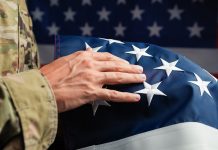Last week’s Bowl Championship Series game was a marvelous contest of the will to win between Auburn and Florida State, with the winning touchdown coming with a mere 13 seconds left in the fourth quarter.
Onward now to the Super Bowl, scheduled for February 2.
For the rest of this month, our sports pages will likely be filled with accounts of the football dramas unfolding on and off the fields each week, especially given that two California teams, the San Diego Chargers and the San Francisco 49ers, are still in the hunt.
In the shadows of these showcase events, however, is an uncomfortable story about the role that human trafficking plays in entertaining visiting fans and executives on corporate expense accounts.
As Dick Crepeau, a Professor of History at the University of Central Florida says, “Major sporting events do draw a lot of prostitutes to the host venue. No doubt this includes many who are controlled by pimps, slave trade bosses.”
He cites past venues like Minneapolis, where escort services offered a 10 percent discount during the Super Bowl. Crepeau, who is working on a history of the National Football League, recalls this quotation by a prostitute: “Pimps see the Super Bowl as a moneymaking opportunity sent by God.”
Which is why the Super Bowl task force in New Jersey acted quickly when the venue for Super Bowl XLVIII was announced: MetLife Stadium in East Rutherford.
Training began early to educate not only law enforcement personnel but also those in the hospitality industry, high school students, and transportation workers about the warning signs of sex trafficking: young women or men who look frightened or ill-at-ease and/or show marks of physical abuse.
Some may argue that prostitution between consenting adults should be legal, but it’s not that simple. Many adult prostitutes were forced into the role as underage runaways or other kids at risk – the homeless, immigrants, and those from abusive homes.
And it is the pimps, aka sex traffickers, who primarily control this billion-dollar industry. When a pimp is involved, there’s nothing consensual about the work.
With thousands of visitors in Newport Beach last weekend for the BCS, I asked Jennifer Manzella of the Newport Beach Police Department whether there had been any incidences of human trafficking.
“No issues whatsoever; no arrests were made,” she reported.
That’s great news, though we won’t have the full story until the end of January, when the Orange County Human Trafficking Task Force will have compiled the number of calls made to its hot line from area code 949 as well as statistics on the number of arrests and rescues that were made this month.
Locally, we have several lines of attack against human trafficking. Since it began in 2004 the Task Force has since rescued more than 300 victims. Law enforcement agencies in particular, the Anaheim Police Department, are training their personnel about the warning signs of human trafficking. The Newport Beach Police Department has a vice unit and its detectives are trained in the investigation of special victims (primarily sexual assault) cases.
Sandra Morgan, director of Vanguard University’s Global Center for Women and Justice, is another in the forefront of educating the rest of us about the issue. Morgan says that it’s going to take more funding of law enforcement agencies to coordinate their efforts and build more resources across the county. And with the passage of Prop. 35 in 2012, California has tightened its anti-trafficking laws.
Football is arguably our national pastime. As such, it must put its stature into the fight against human trafficking, both at the collegiate and the professional levels. Yet after the last cheers fade from Super Bowl XLVIII, such crimes will continue.
Human trafficking goes on every day around the world. Fighting it is something people of all political persuasions can agree upon.
For further information, visit the Task Force website at egovlink.com/ochumantrafficking and the Global Center for Women and Justice at gcwj.vanguard.edu. Anyone who suspects someone is a victim of human trafficking is urged to contact the Task Force hot line at (888) 373-7888.



